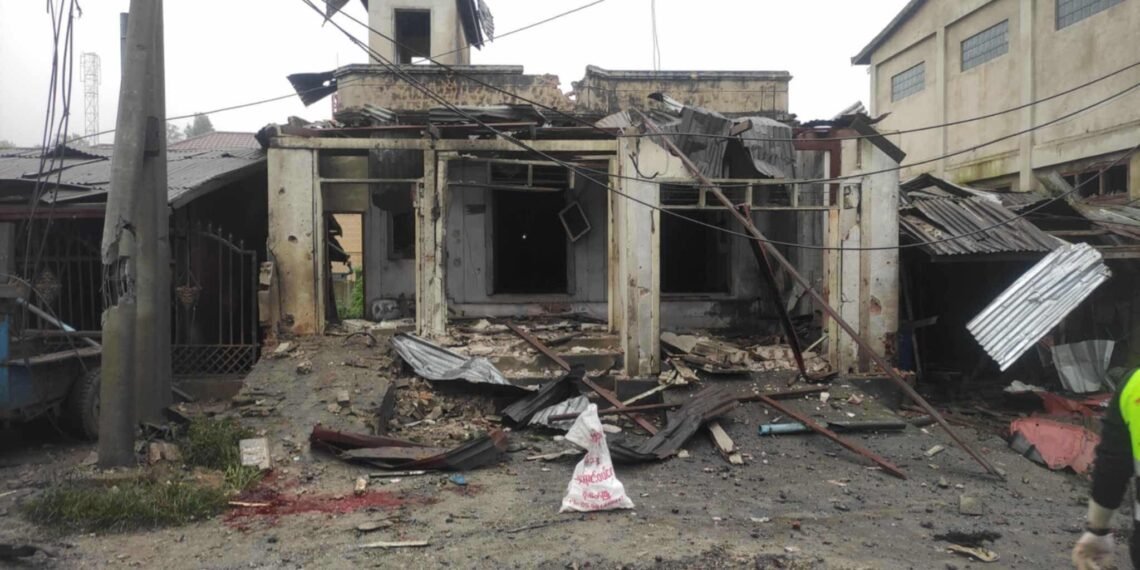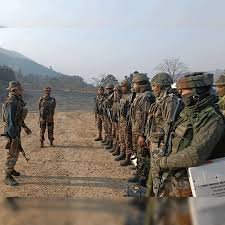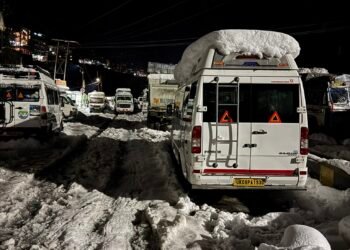The strike hit a busy public area in rebel-held Mogok, underscoring the military’s increasingly aggressive tactics as it struggles to hold ground in key regions.
BY PC Bureau
August 3, 2025: A deadly airstrike by Myanmar’s military junta on the rebel-controlled town of Mogok, a hub of the ruby mining industry, killed at least 13 people on Saturday morning, according to local residents and rebel sources.
The strike, which took place around 8:15 AM local time (0145 GMT), hit a busy public area in Mogok, leaving civilians among the casualties. A local resident, speaking on condition of anonymity due to security concerns, said seven people died on the spot and six others succumbed to injuries later. Among the dead were a Buddhist monk on his morning alms round and a father and son traveling on the same motorbike. A passing car was also struck, injuring the driver and six others.
Lway Yay Oo, spokesperson for the Ta’ang National Liberation Army (TNLA), confirmed the death toll and said the airstrike hit a crowded public area in the morning, resulting in many civilian casualties. The TNLA has controlled Mogok since mid-2024 and reported at least 14 people injured in the attack.
The junta has not commented on the strike.
A Myanmar junta air strike on a rebel-occupied ruby mining hub killed 13 people on Saturday, according to a resident and a spokesperson for an armed opposition group
📷 Myanmar Air Force Sukhoi Su-30 fighter aircraft releases flares on Armed Forces Day
https://t.co/bzHC9KU6yu pic.twitter.com/zRgM2spMQc— AFP News Agency (@AFP) August 2, 2025
Mogok, often referred to as the “Valley of Rubies,” lies at the heart of Myanmar’s lucrative gem trade. The town has been a major prize in the ongoing civil conflict, which erupted after the military coup of 2021 that ousted Aung San Suu Kyi’s elected government. Since then, pro-democracy forces and ethnic militias have formed uneasy alliances in a bid to topple military rule.
READ: Least Manipur Forgets Them (Part 1): David Thiek’s Beheading — Two Years On, No Arrest
While the junta initially retained control of major urban centers, a unified rebel offensive launched in late 2023 succeeded in capturing large swathes of territory, including Mogok. Revenues from the mining and smuggling of rubies, jade, and rare earth minerals—largely sold to China—have funded both sides of the conflict.
In response to recent battlefield losses, the military has ramped up airstrikes and imposed nationwide conscription to replenish its ranks. It has recently retaken several key positions in central Myanmar, including the strategic gold mining town of Thabeikkyin, which fell last month after more than a year of fierce fighting.
Despite ongoing violence, the junta on Thursday declared an end to the state of emergency that has been in place since the 2021 coup. It announced plans to hold general elections in December—a move critics see as a bid to legitimise its hold on power. With Aung San Suu Kyi still imprisoned and many opposition leaders in exile or jail, most pro-democracy parties and lawmakers have vowed to boycott the vote.
A UN expert in June dismissed the upcoming elections as a “fraud,” warning they were designed solely to entrench military rule under a democratic facade.














